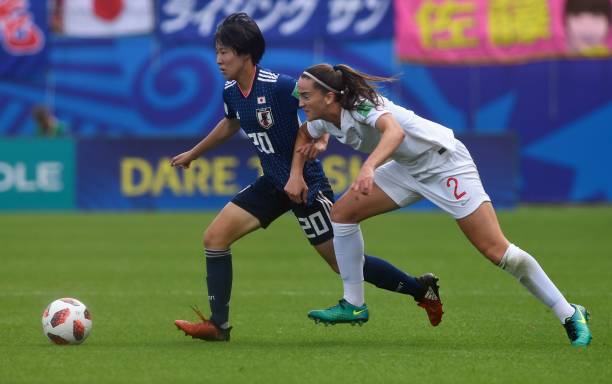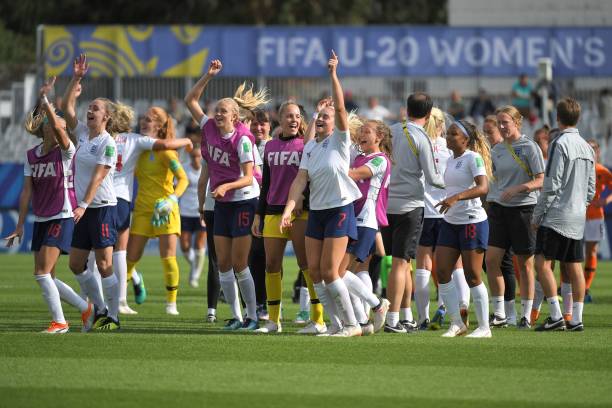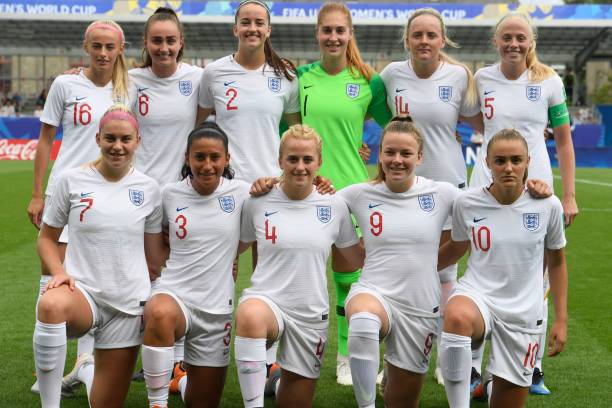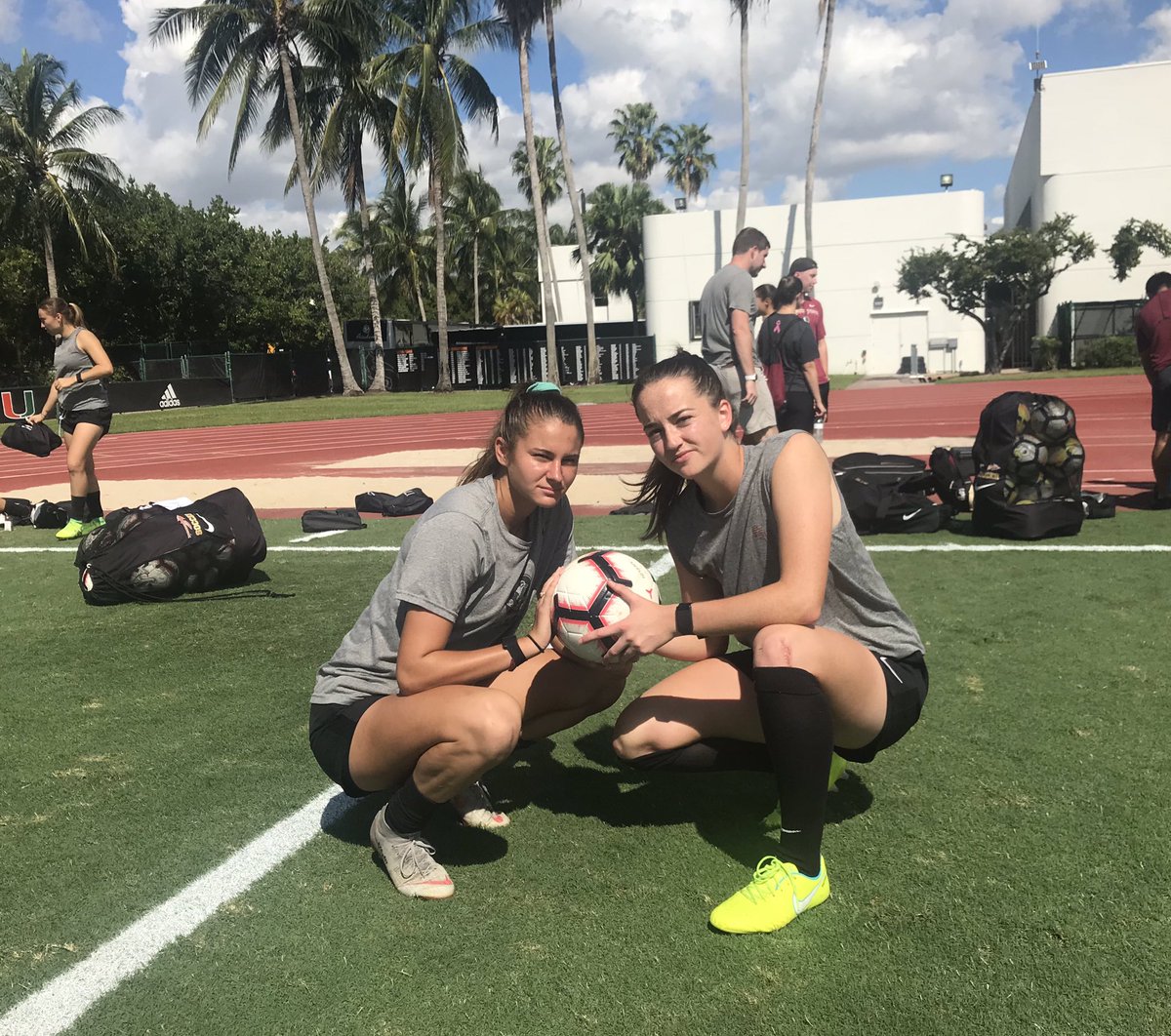A few days ago, I caught up with Anna Patten while she was in England prior to the England u21 camp, to chat about her 2018, this is part 2 of that interview.

The 2018 u20 World Cup in Brittany

We then discussed the u20 World Cup in France, where the young Lionesses managed to come home with a Bronze medal. It was their first ever medal at that level, as England teams were eliminated early in previous tournaments or at the quarter-final stage.
So, my first question was quite obvious. Was there a target for the team prior to the tournament considering the previous history? “Going to every tournament, your aim is to win it. You don’t go there thinking ‘let’s just enjoy the first group stage as we managed to make it that far’.”
I find it refreshing that the team went out looking to win the World Cup, knowing they had the potential. But they were also aware that they had under-achieved at the previous Euros that had acted as the qualifiers for this tournament. England qualified via a play-off against Scotland, as they did not make the final four. As World Cup hosts France made it, a play-off for the final place was organised.
England were dealt a tough group with holders Korea DPR, Brazil, and Mexico. “For us as a team, we took each game by game, but the aim was to win, we never set our target low.” They duly won their group, beating the Netherlands in the quarter-final, before losing to the eventual champions Japan. England claimed their bronze medal by beating hosts France in a penalty shootout.
I asked if the team grew in confidence as they went through the tournament: “After we beat North Korea the holders, quite convincingly 3-1, that’s when we started looking at each other and thinking, ‘we can do this, we can progress far in that tournament!”

Another interesting fact is that England went behind in a few games and ended up winning against Mexico and the Netherlands. Clearly the team was strong mentally to overcome adversity. “That’s part of what we learned at the Royal Marines camp before the tournament, to have that mindset, to keep battling and trust in everyone. That’s what we did, we trusted each other. That’s what helps us to come back from a goal down a couple of time.”
We also talked about the importance of being prepared for a penalty shootout and how England had a penalty shoot-out after every friendly game over a two-year cycle.
It paid dividends against France, who were not as prepared as their opponents. “Leading up to the tournament, with the result at the end of the game we would take penalties and I think just having that experience helped us when it came down to it and I am very happy that we won the penalty shootout.”
What an amazing tournament!! What an amazing team!! 3rd place at the U20 World Cup ❤️❤️ #MadeDits #GETLOUD pic.twitter.com/3msh1gzu6q
— Anna Patten (@PattenAnna) August 24, 2018
With the FA now creating the u21 squad to replace the old NextGen squad that previously replaced the u23 squad, those who won the Bronze medal last summer are in pole position to get promoted to the seniors as seen with Georgia Stanway, Chloe Kelly, and Ellie Roebuck.
Phil Neville has already mentioned Sandy McIver and Lauren Hemp as being earmarked for the Senior team as well so it was interesting to hear about Anna’s ambitions, as she was a key player in the u20 side. “My aim is to try to become an England Women Senior player and I would love to compete, to be at the home Euros in 2021, because I think the atmosphere will be amazing. The World Cup in 2023 is another goal I am trying to reach.”
Going back to university straight after the World Cup

Then there was the return to University straight after the tournament finished.
It might not have been easy with no holiday, coming from a World Cup to return to her normal daily university routine. Was it? “Having to go back and start classes was a shock to the system after such a high getting third place at the World Cup. I was looking forward to being back with my team at FSU. We had grown very close after a tour earlier in the summer.”
Anna’s team went to Europe for an 11-day tour through the Netherlands, Belgium, and France and played three games against Ado Den Haag, Ghent and PSG. Anyone who has done a foreign trip with their school knows how important it is for the togetherness in the group and how people start to bond as they learn about their friends in a different set-up from the school or football pitch.
We then discussed the way games are played over a shorter period in the States, with many games compressed in time unlike in Europe where you get one game a week, maybe one in midweek. “It was hard to adapt, definitely in my freshman year, but at the same time, I had been used to it with FIFA and UEFA youth tournaments, where we have a lot of matches in a short amount of time. I knew what to expect but having two matches week-in, week-out was hard.”
Obviously, conditioning is an important part of women’s soccer in the USA and players spend a lot of time in the gym. “They prepare us well for that. They have amazing facilities, to help us with recovery and everything. It is important out there to be physically fit as well as technically good on the ball.”
The studies side is also key: “They have a good system, where you can still manage to go through your classes and then go to training. But we definitely have less time than the regular student to do homework and revise.” I think that environment is excellent and explains why many England youth players leave to study there and why the FA has changed the system and brought in the new FA WSL Academy program to try to compete and keep players in England.
The soccer season is now finished, so there must be more time to study surely? “Our advisers are trying to give us a couple more classes in that time, but we still do train just as much. It is just that we have fewer matches and less time when we miss classes. The training schedule is still pretty intense when we get back in the Spring.”
Then came the big moment – winning the College Cup this year: “It was an amazing experience, I owe it to the coaches and the team. I was so happy to win such a prestigious trophy, especially out there, it is very recognizable. To be able to call yourself a national champion is not what a lot of people can do.
“I am very honored and proud of what the team achieved.”
https://www.youtube.com/watch?v=ZaR06TQ2rHo
Lucy Bronze with UNC and Ashleigh Plumptre with USC are the other English winners of the NCAA title, it is certainly a huge honor to win that trophy and this was the icing on the cake of a fantastic 2018 year for the 19-year-old defender.
